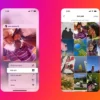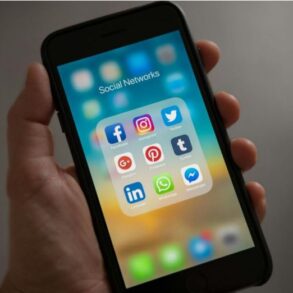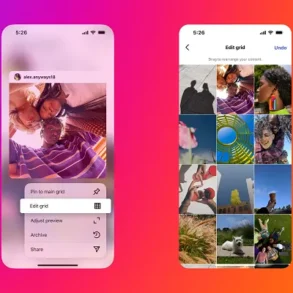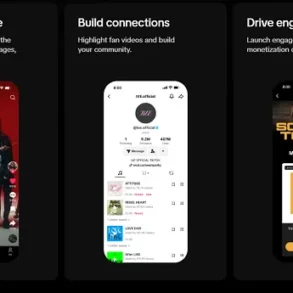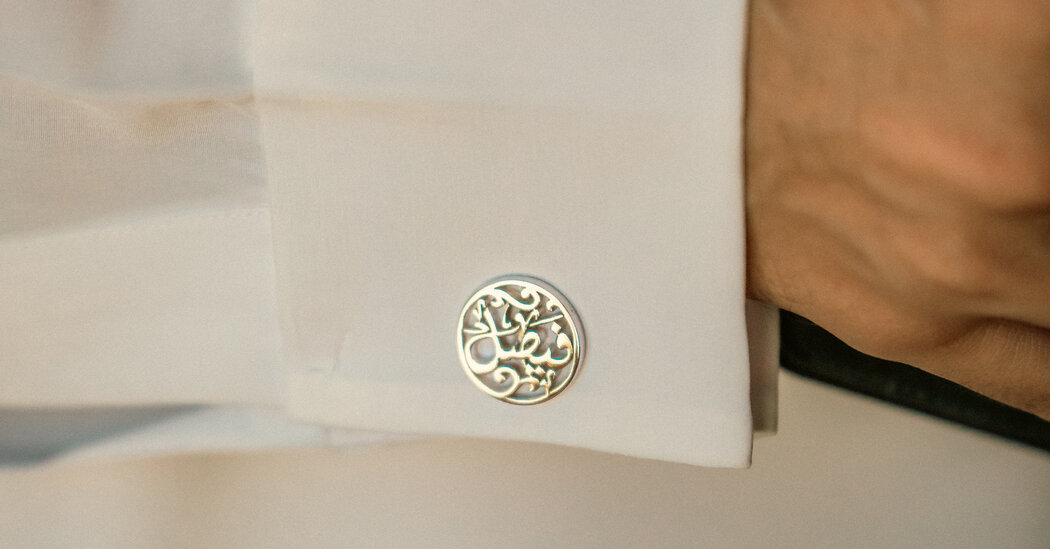
The traditional jewelry is seen as a way to add flair to men’s simple gown-like garments.
Cuff links may be something of a rarity in Western men’s attire these days, but they have emerged as a symbol of status in the Middle East — adding a personalized touch to the traditional gown-like outer garment worn by men in the United Arab Emirates and neighboring Arab countries.
After all, the links are worn on the sleeves of the thawb (pronounced “thobe”) — also called the kandoora or the dishdasha — so they get more visibility than they do with a Western suit.
In a teeming corner of the Dubai Gold Souk, the jewelry has become an important product for a business founded in 2009 by five immigrants from different countries.
“We offer cuff links that have the customer’s name or his initials in Arabic or English,” said Junaid ur Rehman, a co-founder of Necklaces by Samaa and the business’s creative director. “We decided to personalize our jewelry and cuff links so that everyone has a piece of jewelry that is entirely theirs.”
Over its 14 years, the business has gone from making just necklaces to producing other accessories, including jewelry for men. It now offers 19 cuff-link designs, all made in sterling silver by its 35 full-time employees in the souk, which is in the Deira neighborhood, commonly called Old Dubai.
The links generally feature the wearer’s initials or name, which is designed by the company’s calligraphy expert and then produced as a series of cutout letters or, on more traditional links, engraved by laser on their flat or rounded surfaces. The price range for both engraved and cutout versions is 319 dirhams to 445 dirhams, or $87 to $121.
Mr. Rehman said the growing popularity of cuff links extended beyond local Arabs buying for themselves. They have become popular gifts to impress clients or to mark the closure of business deals, and less expensive versions often are given to visitors as mementos.
“We work with 25 to 30 corporations in the U.A.E. for gifts for their best employees or for foreign visitors,” Mr. Rehman said. “We also create cuff links as gifts for Christmas, graduations, Muslim holidays like Eid, birthdays, weddings and anniversaries.”
For Deakin & Francis, the London jeweler that, founded in 1786, is among the oldest in Europe, cuff links are suddenly a popular product in a part of the world that the company has only recently begun to discover, despite a steady stream of Arab visitors to its flagship London store.
“Thawbs are a very plain piece of clothing, and there are only three ways you can really express yourself, such as with a watch, a pen and cuff links,” said Henry Deakin, a co-owner of Deakin & Francis and the seventh generation of his family in the business.
In February, the company, which primarily sells online and through its London store, began selling about 30 different cuff-link designs at the Rivoli men’s store in the Dubai Mall. Mr. Deakin said he also was in talks with some retailers in Qatar about beginning sales there.
The best-selling cuff links among Middle Eastern clients — including thawb-wearing ones in Britain — are two 18-karat white gold designs set with diamonds, priced at 15,710 pounds and 18,860 pounds ($19,575 and $23,500).
Mr. Deakin said there also was a growing interest over the past few years in custom-made links. “For this market, we’re doing a lot of bespoke items for clients who want a 3-D model of a pet falcon, or for a car or boat,” he said.
A recent commission for a Qatari customer actually did depict a falcon, created in yellow and white gold with a ruby eye. Another client in the region wanted cuff links in the shape of his private jet. There were a lot of specifics to get right for that bespoke item, Mr. Deakin said. It cost about £10,000.
“It was very important that we got the number of windows of his private jet correct,” he added with a laugh.
This post was originally published on this site be sure to check out more of their content



